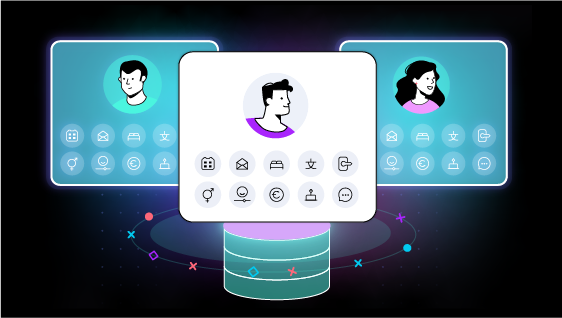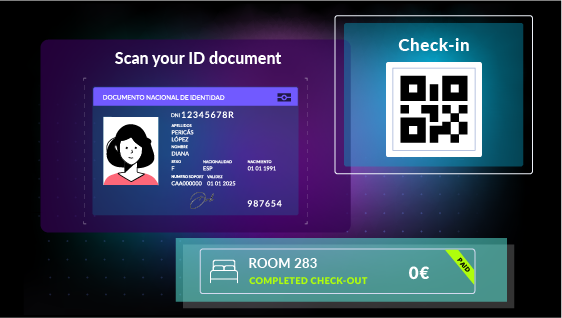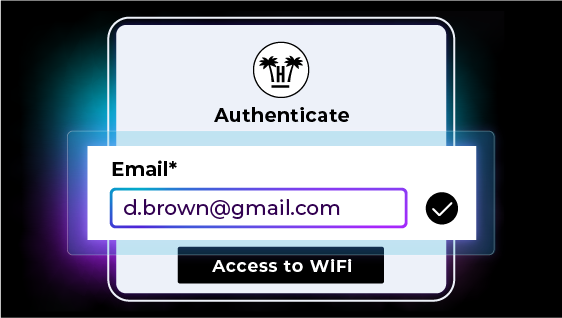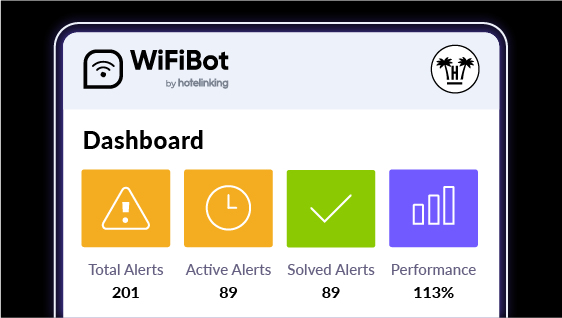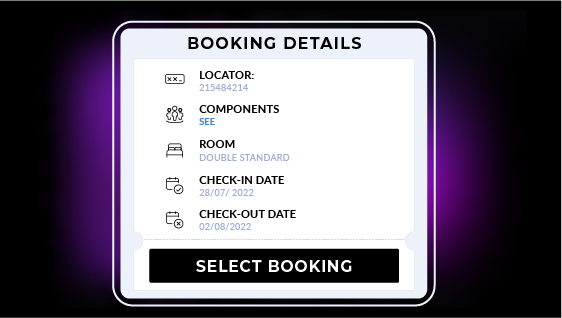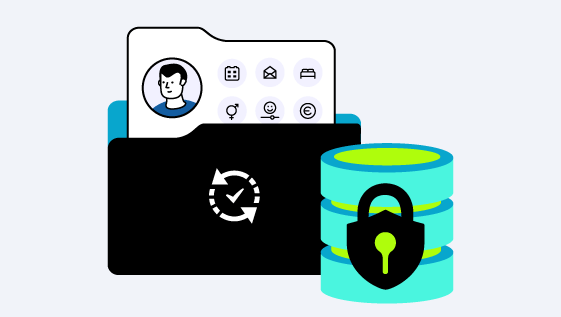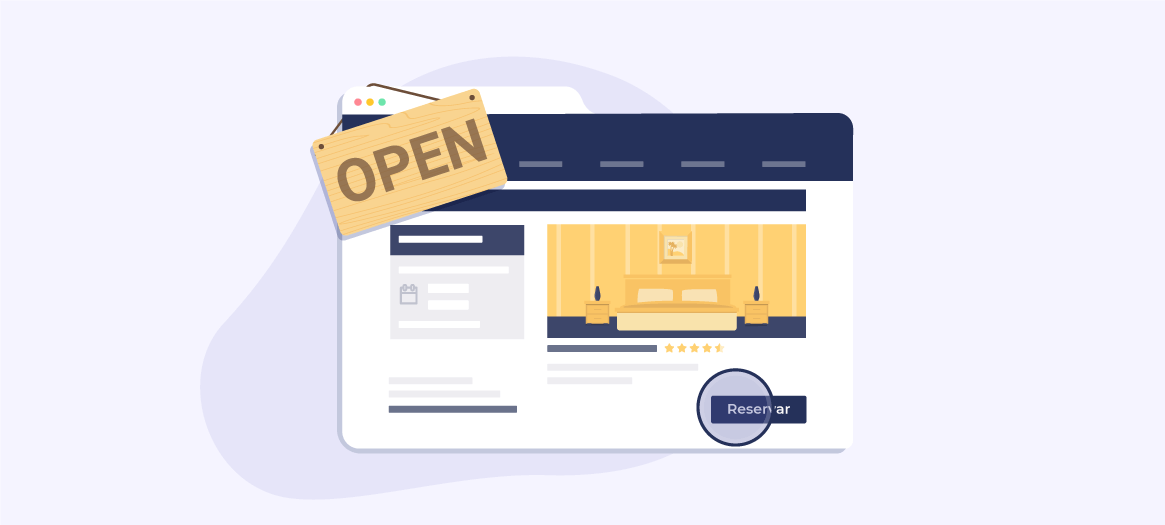
What measures can we take to attract more direct bookings? Border openings from 21st June. The beginning of a new normal.
The current situation shows the need to invest in tools that allow to know the customer better.
In a matter of weeks, the tourism industry and the global economy have suffered unprecedented damage from the impact of COVID-19, which has forced borders to close, placed restrictions on citizen movement, and resulted in the cancellation of events and the temporary closure of many businesses.
The abruptness with which the pandemic has taken over has been (and continues to be) devastating and has significantly compromised economic viability and the future of all aspects of the tourism industry.
Many tourism companies have rushed to take steps to deal with this unique situation that has generated a wave of travel cancellations and a nosedive in hotel bookings, and which is estimated to cause a decline of over 40% of the tourism sector’s GDP.
The encouraging part is that, when faced with challenges and with the experience of other crises that have had a huge impact on tourism, and in a world that is more and more connected and technologically advanced, the tourism industry, as well as the world in general, is better equipped to face the consequences of a global crisis.
The opening of borders on June 21st is a positive move for the sector that was necessary and urgent. Agencies and tour operators can restart operations, but above all the general public can start to think about taking holidays again. This is the time to grab their attention and try to divert bookings to your direct channel.
What measures can hotels implement to restore bookings?
After the explosion of coronavirus, hotel companies have needed to cut costs to maintain budgets and reduce impact on their bottom lines. However, for a swift recovery, they should consider increasing investment in strategic digital platforms that allow them to prepare to deal with all the bookings that will soon come flooding in as the impact of the virus continues to drop.
At Hotelinking, we believe it is important to cover 4 basic areas:
1. Keep in touch with customers to avoid losing them
With 21st June in sight, hotels, OTAs and TTOOs are almost having to start from scratch, trying to capture demand while waiting to see how things unfold. To do this, it is fundamental to keep in touch with customers to avoid potential new cancellations, offering them options at all times.
We must also use this opportunity to establish personal relationships with customers and prove that they can continue to place their trust in the company. In short, maintain contact now to be able to keep them as guests later.
This is only possible if you have their contact details and email.
Having a quality database of contacts is one of the most important assets that you can have. It is essential for carrying out marketing and customer loyalty initiatives that allow you to recover bookings and drive them to the direct channel.
We know that this information is often difficult to obtain, especially for those bookings that come from commissioned channels, which is why one of the most efficient options is to collect details automatically using WiFi. This entails installing a Captive WiFi Portal System that collects the details of every guest that connects to the hotel’s network.
This way of collecting information is highly efficient, since it does not require intervention from staff members, and once users decide to connect to the WiFi, it is hassle-free. The information is validated instantly, and a high-quality database is generated that complies with the European General Data Protection Regulation (GDPR).
As well as main contact information, it is also important to complement this information with data about consumption habits and trends in bookings and customer travel. In other words, information that helps you to create consumer profiles that your hotel brand can take into account for its marketing and loyalty initiatives.
2. Use personalisation to inspire trust
If a customer has a bad experience with managing a booking, you might lose them forever. To offer an experience with the brand that is as satisfactory as possible, it is essential at this time to personalise communication with your customers whenever possible. As well as helping to create relevant and interesting messages, it inspires trust and brand loyalty. In the end, the customer will remember how you dealt with his or her issues with regard to postponing or cancelling their trip. For this reason, a hotel must try to collect as much information as possible about the guest to have accurate customer profiles that allow them to get to know them better.
For example, data captured through the Captive WiFi Portal, like the guest’s verified email and GDPR status, can be further enriched if it is used with other information from the PMS, such as the booking channel, room type, board type, number of adults on the booking, number of children on the booking, additional costs during the stay, etc. This consolidation of data means integration with the PMS and therefore having a much more detailed list of customers, which enables more accurate segmentation, and therefore greater personalisation with opportunities to communicate with guests without being invasive, because it is possible to adapt to each of them.
3. Activate demand with email marketing campaigns
Now that activity is returning to a certain normality, people are starting to make bookings again. Although it is important to maintain bookings by offering options to customers and transmitting trust in the accommodation, it is also vital to have a plan in place to manage all the demand that is gradually increasing and to make the most of this time to redirect it towards the direct channel. In both cases, email marketing campaigns are fundamental for maintaining this communication, improving customer loyalty and boosting direct sales.
Once we reach this point, it will be necessary to implement email marketing initiatives and for this, a hotel CRM is a tool that can help you to make highly segmented and automated campaigns with the contact list you have obtained. These are two key aspects for success with campaigns because they will help you to send the most appropriate email at the best time in the customer journey of each defined audience and therefore increase your opening rate and guarantee higher conversion.
For example, geographical segmentation of contacts in this case is fundamental given the travel restrictions that will begin to be lifted differently in each country. Therefore, in email marketing campaigns it will be a deciding factor to define a clear and differentiating strategy about what they want to communicate and offer at each stage, both during lockdown and afterwards, and to which customers.
To help with this, we have created a detailed guide about hotel email marketing that you can download for free on our website. You will find advice about implementing advanced strategies, as well as step-by-step guidelines to optimise your email marketing campaigns successfully.
4. Converting website visitors into future customers
During these weeks of semi-lockdown, content consumption is increasing significantly. This offers new opportunities to connect with different audiences of a brand and further strengthens connection, paying attention to which messages to offer so that they are suitable for the context and generate value. To do this, it is crucial to understand how users, subscribers and followers are behaving during this time. Analysing all channels and contact points (website, email and social media) will allow you to find out this information and evaluate which actions are the most appropriate to implement.
A key tool is the website because it plays a fundamental role in the first stages of decision-making, when people are looking for information that inspires them and helps to narrow down their options. You should not neglect your page and it is important to invest time and effort into improving it to guarantee that visitors make bookings. This means building a website focused on conversion with powerful calls to action, impactful images, intuitive navigation and customer comments. In short, it must have valuable content that helps to build long-term relationships.
If you want visitors to your website to book, you can capture them immediately with loyalty and sales tools that offer incentives so that they don’t leave the website without taking action. For example, at Hotelinking we have designed an online automated lead capture assistant that aims to encourage website visitors to reserve through the website, or if they do not do it at that time, their details can be captured to remind them about doing it later. In this way, the potential customer enjoys extra benefits that they won’t find on other websites and the hotel wins leads and bookings through its own channel as we explain in detail in this article.
In short, the current situation has shown the need to invest in customer loyalty initiatives because it positively affects a hotel’s revenue. To do this, it is fundamental to have powerful tools in place that allow you to understand your guests’ needs and preferences, keep in direct contact with them and build a relationship of trusts that lasts over time (including during bad times).
